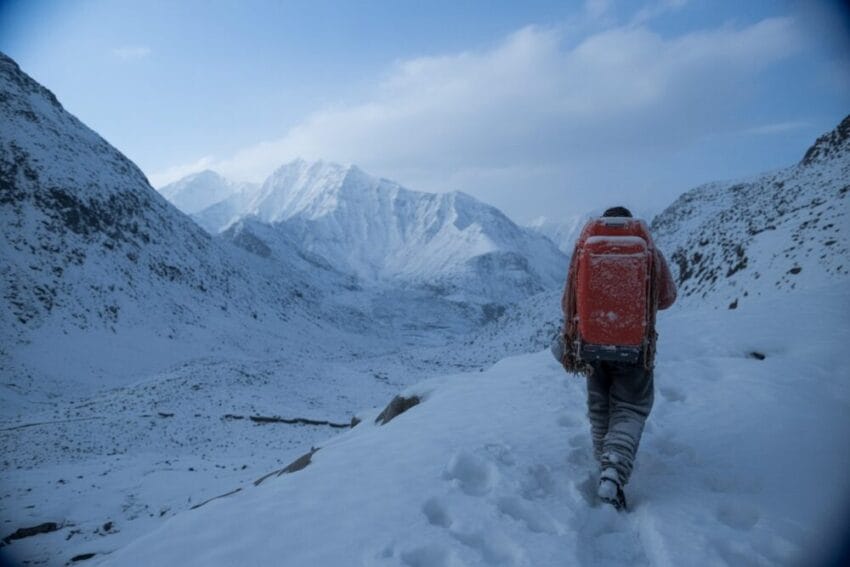 BREAKING
BREAKING
India Faces Travel Chaos as Access to Mount Everest Closed After Cyclone Monta Triggers Record Snowfall Across the Himalayas
Cyclone Monta unleashes record Himalayan snowfall, forcing authorities to close access to Mount Everest and paralyzing travel across India, Nepal, and Tibet. Tourism operations are suspended as rescue teams battle extreme weather conditions.
<h2>Access to Mount Everest Closed After Cyclone Monta Devastates the Himalayas</h2>
Access to Mount Everest has been officially closed following relentless snowstorms caused by Cyclone Monta.
Tibetan authorities confirmed that northern routes to the world’s highest peak are now impassable after record snowfall buried mountain passes and base camp trails.
Officials from the Tibetan Ministry of Emergency Management have halted all tourist and expedition activities, suspending ticket sales and road access until further notice. With temperatures plunging and visibility near zero, safety remains the top priority.
Emergency Response and Government Action
The China Meteorological Administration has issued continuous warnings of incoming storms and possible avalanches.
Authorities have deployed multiple emergency and snow-removal teams, restricted high-risk zones, and set up weather monitoring stations across the Tingri region — the main gateway to Everest’s northern face.
Key government actions include:
-
Restricting movement in high-risk snow zones
-
Deploying emergency response teams
-
Setting up communication and monitoring stations
-
Releasing regular traveler safety updates
Impact on Himalayan Tourism and Local Communities
The closure of Mount Everest has dealt a heavy blow to Himalayan tourism, particularly affecting Sherpa guides, porters, and local businesses in Tingri and Khumbu. Normally, late October marks a peak climbing period — now replaced by silence across once-busy trails.
The Tibet Tourism Bureau has begun support programs for affected workers, while the Ministry of Tourism has assured that inspections and safety improvements will strengthen future mountain tourism infrastructure.
Cyclone Monta and the Himalayan Snowfall Pattern
Meteorologists explain that Cyclone Monta drew warm, moisture-heavy air from the Bay of Bengal, colliding with cold Himalayan fronts to trigger heavy precipitation and freezing storms.
The National Centre for Meteorology and Climate Change (NCMCC) reports that this event underscores climate volatility in the region, with rapid temperature shifts and increased risks of avalanches.
Weather forecasts predict:
-
Freezing temperatures below seasonal averages
-
Persistent snowfall in Tingri County
-
High avalanche and landslide risks
Travel Advisory and Visitor Guidelines
The Ministry of Tourism of China has released an advisory urging travelers to postpone trips to Everest’s northern approach.
Officials have restricted transportation to emergency operations only and strongly warn visitors to avoid risky routes.
Safety guidelines:
-
Stay in designated safe shelters
-
Avoid movement without local clearance
-
Follow official meteorological bulletins
-
Report emergencies promptly
International Coordination and Future Preparedness
Both India and China are cooperating via a joint Himalayan weather tracking system, sharing data on temperature, snow depth, and avalanche probabilities.
Authorities are using this closure period to upgrade disaster preparedness, evacuation routes, and tourism safety protocols.
Ongoing initiatives:
-
Strengthening weather-warning systems
-
Enhancing evacuation and rescue plans
-
Training guides in high-altitude emergencies
-
Improving cross-border data sharing
Nature’s Reminder: Safety Before Summit
The closure of Mount Everest serves as a powerful reminder that nature commands respect.
The world’s tallest mountain now lies silent beneath layers of snow — a temporary pause for reflection rather than defeat.
When the snow clears and the routes reopen, climbers will return — hopefully with greater preparedness, humility, and environmental respect for the Himalayas.
Weather Update: Heavy snowfall, −25°C, near-zero visibility
Peak Altitude: 8848 m
Risk Level: High
Expedition Info: All north-face expeditions suspended until further notice